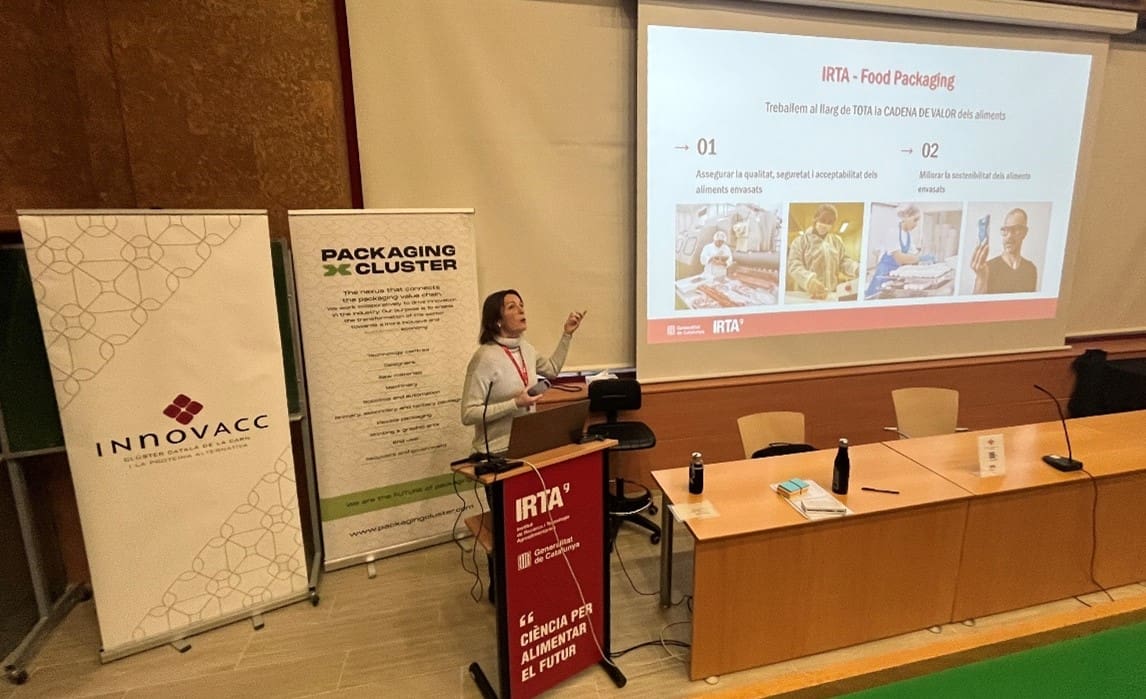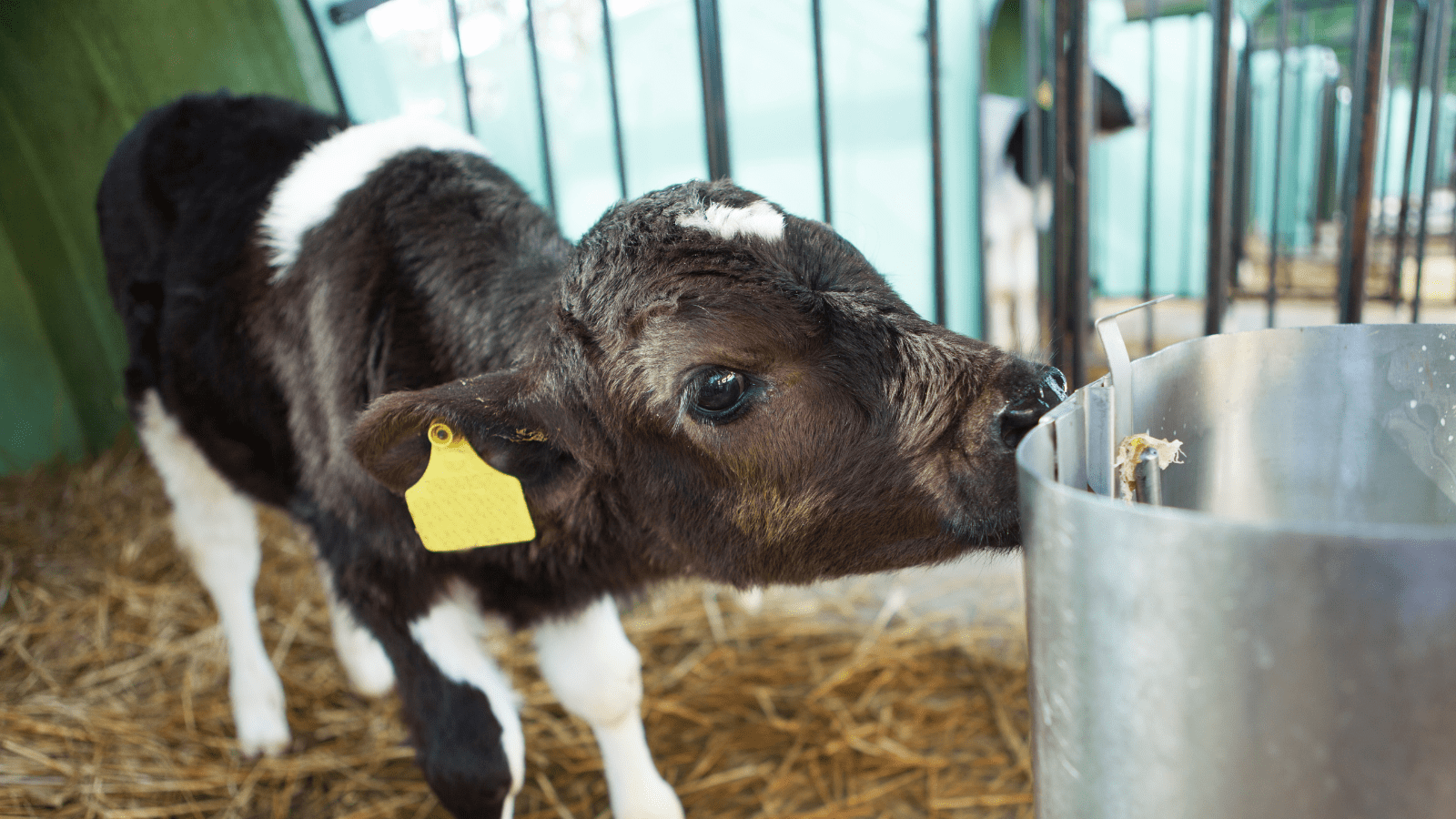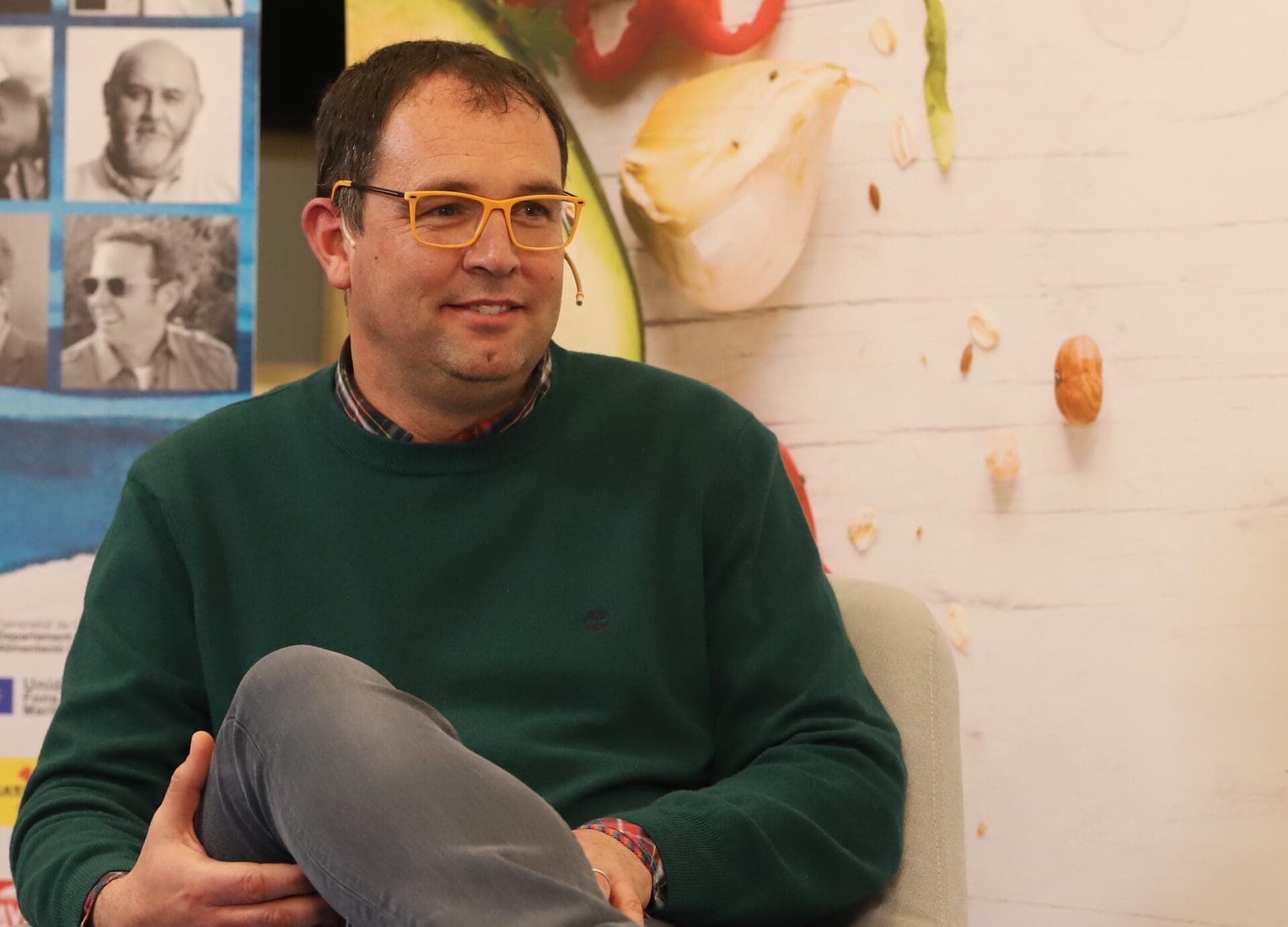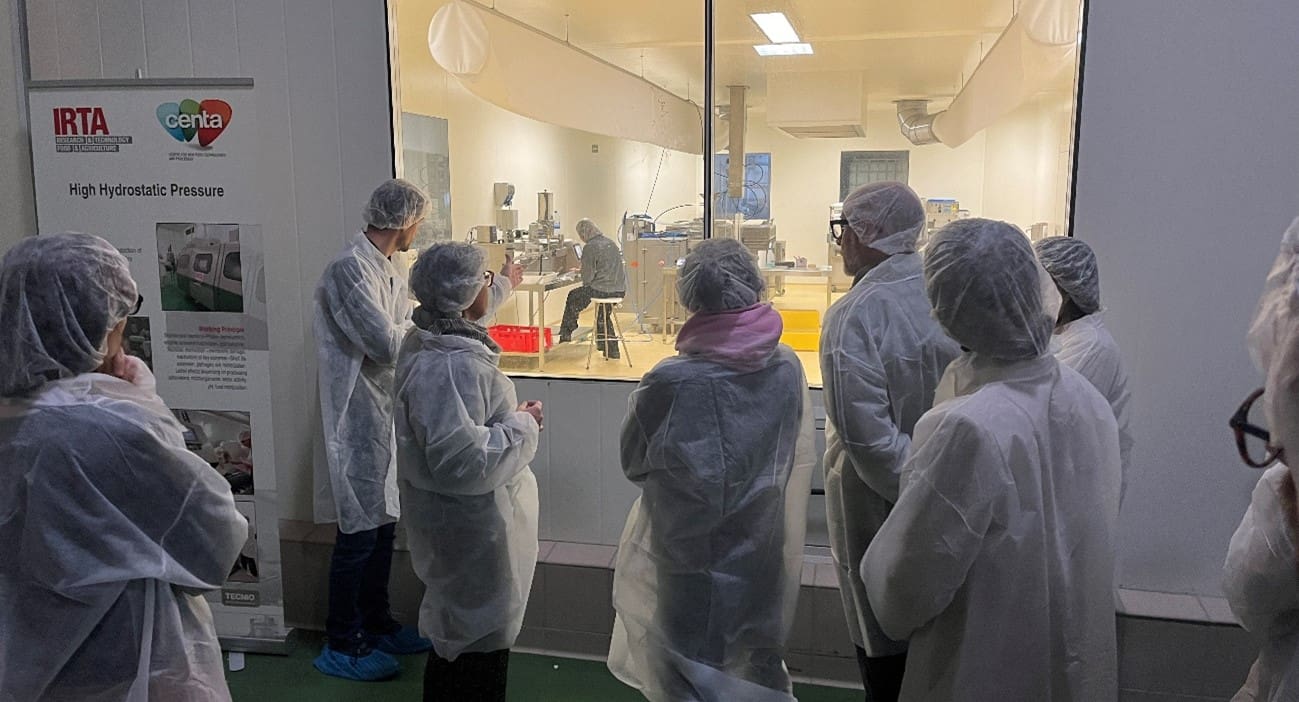
The session, attended by more than 50 participants from the packaging, meat, and alternative protein sectors, served as the final event of the MEÆTPACK project, where the sectoral guide for meat and alternative protein packaging within the context of Circular Economy and Ecodesign was exclusively unveiled. The study, funded by the Catalan Waste Agency through the Circular Economy Promotion Projects call, analyzed various sustainable packaging solutions holistically throughout their life cycle, considering both the ecological footprint of the packaging itself and the prevention of food waste that these packages can enable. MEÆTPACK is an initiative promoted by the Packaging Cluster in collaboration with INNOVACC, the Catalan cluster for meat and alternative proteins, and executed by inèdit.
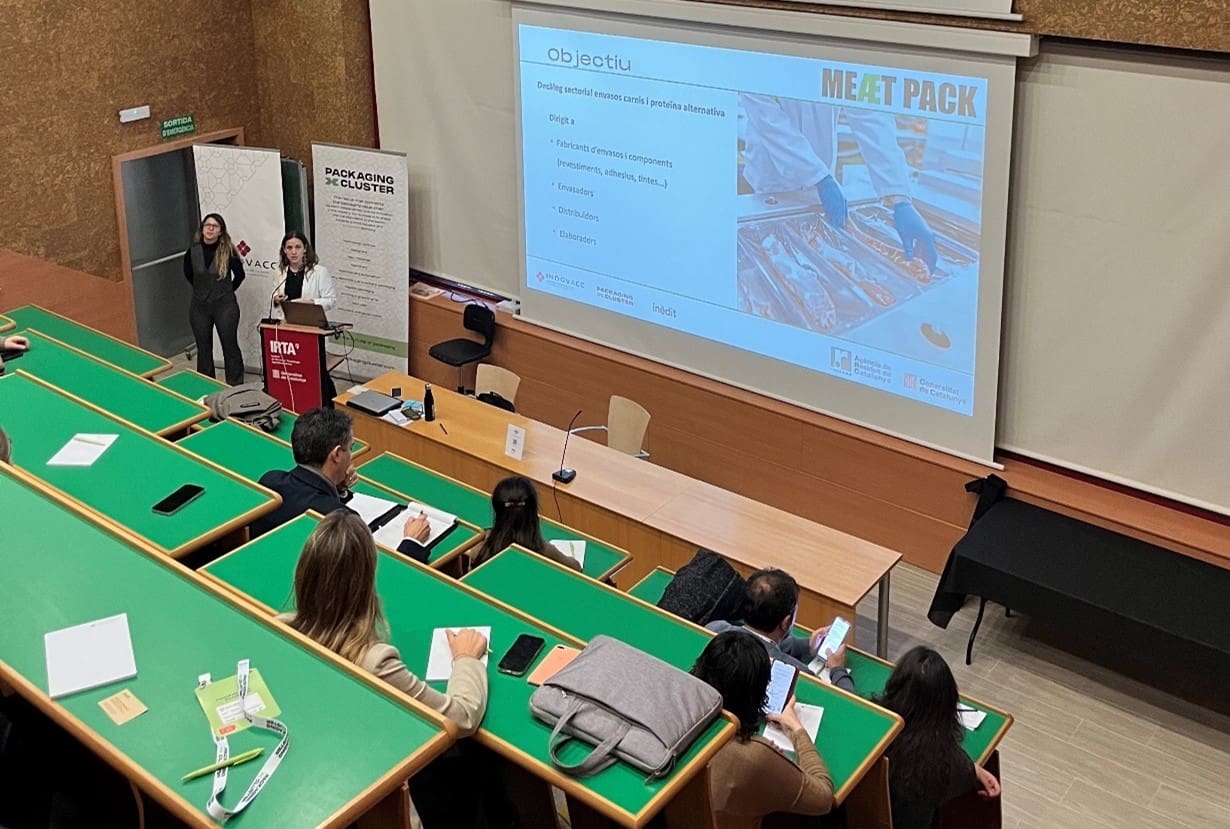
The meeting began with welcoming remarks from INNOVACC and the Packaging Cluster. This was followed by inèdit’s presentation of the MEÆTPACK Guide, which detailed the guide’s structure, methodology, and content. The guide includes an overview of sustainable packaging trends in the sector, its alignment with the legislative context and existing certifications, and considerations for recyclability-focused design—a legislative requirement outlined by the European Union for the coming years. Additionally, it provides tools for selecting materials based on their environmental impact, presented as 40 actions framed within 10 strategic lines for packaging ecodesign. The guide also highlights best practices from the participating companies and reviews common sectoral and technical challenges.
Following this, IRTA delivered a presentation on sustainable packaging projects applied to the meat sector. After a networking coffee break, participants engaged in a collaborative project-generation workshop. The event concluded with a guided tour of IRTA’s Monells facilities, where attendees learned about its research and innovation in technology, quality, and food safety. IRTA’s research lines cover areas such as animal production, animal health, sustainable agriculture, food technology, and food quality, as well as the development of more efficient and environmentally friendly production systems, among others.
